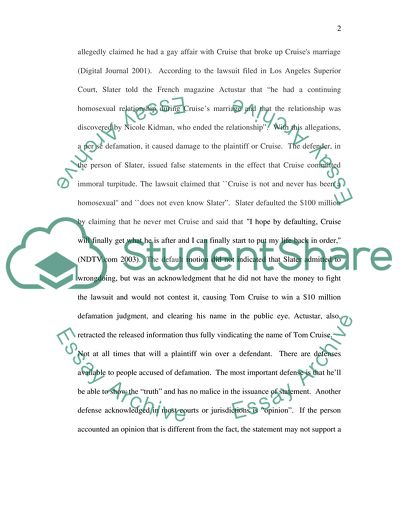Cite this document
(“Defamation: Libel and Slander Law Essay Example | Topics and Well Written Essays - 500 words”, n.d.)
Defamation: Libel and Slander Law Essay Example | Topics and Well Written Essays - 500 words. Retrieved from https://studentshare.org/law/1538672-defamation-lawsuits
Defamation: Libel and Slander Law Essay Example | Topics and Well Written Essays - 500 words. Retrieved from https://studentshare.org/law/1538672-defamation-lawsuits
(Defamation: Libel and Slander Law Essay Example | Topics and Well Written Essays - 500 Words)
Defamation: Libel and Slander Law Essay Example | Topics and Well Written Essays - 500 Words. https://studentshare.org/law/1538672-defamation-lawsuits.
Defamation: Libel and Slander Law Essay Example | Topics and Well Written Essays - 500 Words. https://studentshare.org/law/1538672-defamation-lawsuits.
“Defamation: Libel and Slander Law Essay Example | Topics and Well Written Essays - 500 Words”, n.d. https://studentshare.org/law/1538672-defamation-lawsuits.


